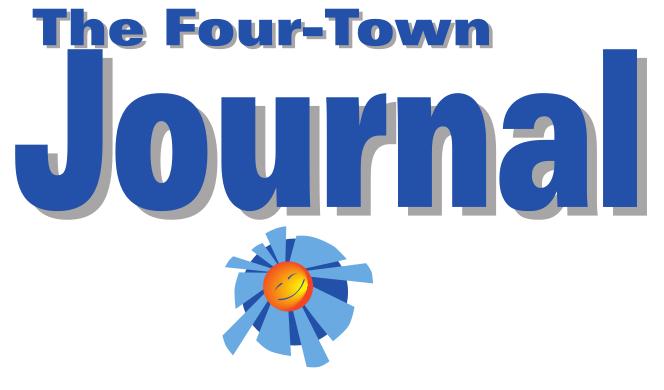Councillor Barnhart of Saltcoats is an influential citizen. He is the President of the Municipalities of Saskatchewan (formerly known as SUMA); this is on top of spending his time helping the Town of Saltcoats as a Councillor and working with organizations such as the University of Saskatchewan. He was elected as a Councillor in the town of Saltcoats in 2016 after serving as the University of Saskatchewan’s interim president in 2014 and 2015.
Recently, he announced the organization commonly known as SUMA has switched their name to Municipalities of Saskatchewan; the decision was announced during their convention in Regina this past week.
President Gordon Barnhart said the name change has been in the works for a few years now.
“It was a decision by the board made over a year and a half where we had a professional agency helping us with branding, as well as focus groups to canvass people to see 1) if we needed to change the name and 2) what should the new name be; this is what we came up with.”
One consideration when determining the new name was ensuring their new acronym was not identical with other prominent acronyms such as SMA (Saskatchewan Medical Association).
Barnhart said, “We have a lot of towns and villages across this province who are very proud to be a town, but never really think of themselves as being urban. Many people define urban as a city.”
Councillor Barnhart was in Quebec City at a convention, trying to meet with the federal Rural Minister. A misunderstanding with the word “urban” in the SUMA acronym caused the Minister to think SUMA represented the cities. After a bit of clarification regarding the group representing villages, towns, resort villages and northern communities as well as cities, the meeting took place.
The federal government, for grants, and Federation of Canadian Municipalities define “rural” as a population under 100,000; that means Regina and Saskatoon would be our province’s only urban areas.
Once the change was made, groups such as New North (representing the northern areas) mention they feel included. With the new name, towns, villages, resort villages, northern areas and cities are included.
“We’ve had one or two negative, but the big cities seem to be happy,” Barnhart said. “The north is very happy, they said ‘urban never applied to us in the north, and now we’re included,’ so we’re happy for that change as well.”
A resolution was proposed at the recent convention by a municipality for there to be discussions between SUMA and SARM about having a merger; this was defeated by the members.
“Myself as president on our board, we didn’t take a stand. This was coming from one of our members and we said ‘let’s see what the membership thinks’ and they were quite clear as they said ‘no’. I’m not going to question that. We are two separate organizations. We have been working well together and our hope and plan is to have joint projects with SARM.”
Change can be a shock to anyone.
After processing the announcement of the name change, one woman at the convention stood up and said “we have to change with the times”.
Barnhart added that the name provides more clarity for the federal government as well saying if a lobby group doesn’t receive any meetings with ministers because of the name, then it means it’s time to change.
We had a very successful convention, well over 1000 people there in terms of registered delegates. One of the largest trade shows ever. We have suppliers from big equipment to small things that municipalities need to buy. The convention also includes a full day of educational sessions for people working with municipalities as well as Mayors and Councillors. The Premier addressed us and then it concluded with a “bear pit”; the Premier and all Cabinet appeared on stage and were open to questions for [around] two hours”.
“There’s an announcement that we’re getting more revenue sharing this year. Municipalities are in desperate need of money; particularly for infrastructure and that sort of thing. Obviously we are pushing for more. A lot of communities in Saskatchewan, their sewer and water went fifty years ago and it is worn out, as is the case in Saltcoats and Churchbridge.
Revenue sharing to Saskatchewan municipalities will rise to a record level in the 2020-21 fiscal year, Premier Scott Moe told delegates. This is an increase by $27-million to $278-milllion, an 11 per cent jump from 2019-20.
The province’s municipal revenue sharing program is based on three-quarters of one point of provincial sales tax (PST) revenue collected from the fiscal year two years prior to the current year, the government said.
The amount of PST collected by the Saskatchewan government increased in recent years after the province increased the PST from five to six per cent in 2017.
Now, SUMA delegates plan to lobby the province to give them a PST exemption for construction projects.
“We are pushing the provincial government as well to take off the PST on municipal construction for buildings [or projects] like the expansion of our lagoon in Saltcoats. We get a grant from the government and we have to clawback 6% of that due to the PST.”
PST was added a couple of years ago when the government added it to help balance their budgets.
Municipalities of Saskatchewan is the way to describe the organization, versus the acronym MOS.
After a busy time working at the provincial level, Councillor Barnhart returned to Saltcoats to focus again on his local tasks; it’s just another week in the influential life of citizen Gordon Barnhart.
